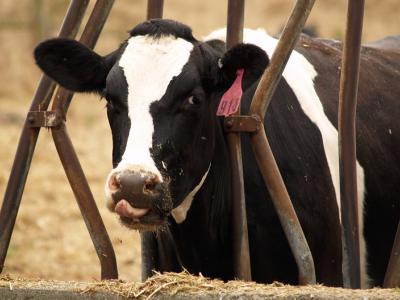CARB-X to fund development of novel antibiotic for CRE infections
CARB-X announced today that it is awarding up to $4.1 million to Summit Therapeutics of Cambridge, Massachusetts, to develop a first-in-class antibiotic to treat multidrug-resistant bacterial infections.
The money will help fund development of SMT-738, the first candidate from a novel class of antibiotics that target carbapenem-resistant Enterobacteriaceae (CRE) via the LoICDE complex, an essential lipid transport system in gram-negative bacteria. The company says SMT-738 has shown potent in vitro activity against CRE isolates, including strains carrying the New Delhi Metallo-beta-lactamase (NDM) enzyme, and that it hopes to begin phase 1 clinical trials in 2023.
Under the award from CARB-X (the Combating Antibiotic-Resistant Bacteria Biopharmaceutical Accelerator), Summit could receive an additional $3.7 million if certain project milestones are achieved.
"SMT-738 has the potential to save the lives of patients, as yet with untreatable infections through a novel drug class with a low propensity for resistance development," Summit Chairman and Chief Executive Officer Robert Duggan said in a CARB-X press release. "We are excited and optimistic to take on the real challenge of antibiotic resistance and are grateful to CARB-X for partnering with us in support of this important mission."
The Centers for Disease Control and Prevention (CDC) estimates that infections caused by CRE, dubbed "nightmare bacteria," kill an estimated 1,100 hospital patients a year.
CARB-X is now funding 58 active projects focused exclusively on drug-resistant bacteria.
May 18 CARB-X press release
Chronic wasting disease found for first time in 2 Texas counties
Two instances of chronic wasting disease (CWD) have been confirmed in deer-breeding facilities in Matagorda and Mason counties, Texas, marking the first cases in these counties, according to the Texas Parks and Wildlife Department (TPWD) late last week.
Besides securing the deer at these sites for further investigation, any facility that has given deer to or from these locations in the past 5 years has been contacted and told not to transfer any deer.
CWD is a fatal prion disease affecting the cervid family, including deer, elk, and moose. It can be spread through contact with infected fluids, antler velvet, and prions shed onto the environment, and prions can take years to incubate in their hosts before presenting symptoms.
Both deer-breeding facilities received deer from Uvalde County, which had flagged CWD cases on Mar 29 during an epidemiological investigation. On Mar 31, TPWD and the Texas Animal Health Commission (TAHC) confirmed CWD at both that site and at a Hunt County breeding facility. (While Uvalde County is 100 miles west of San Antonio, Matagorda County is on the coast of the Gulf of Mexico, Mason County is 118 miles northwest of Austin, and Hunt County is in Texas' northeast corner.)
"Regrettably, the gravity of this situation continues to mount with these new CWD positive discoveries, as well as with the full understanding of just how many other facilities and release sites across Texas were connected to the CWD positive sites in Uvalde and Hunt Counties,” said Carter Smith, TPWD executive director, in a TPWD press release.
"Along with our partners at the Texas Animal Health Commission, we will continue to exercise great diligence and urgency with this ongoing investigation. Accelerating the testing at other exposed facilities will be critical in ensuring we are doing all we can to arrest the further spread of this disease, which poses great risks to our native deer populations, both captive and free-ranging alike."
CWD spread was identified in Texas in 2012, more than 50 years after the disease was first discovered. Now, TPWD reports, 228 cases have been confirmed in 13 counties.
May 14 TPWD press release














